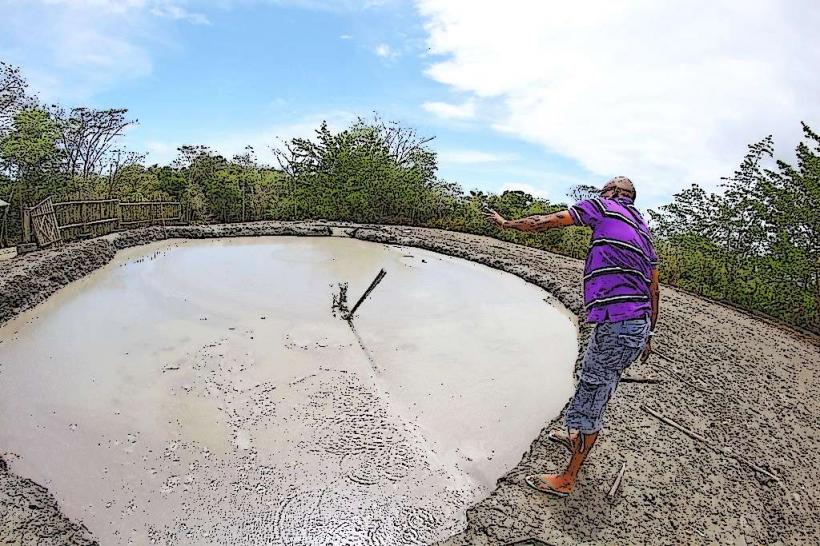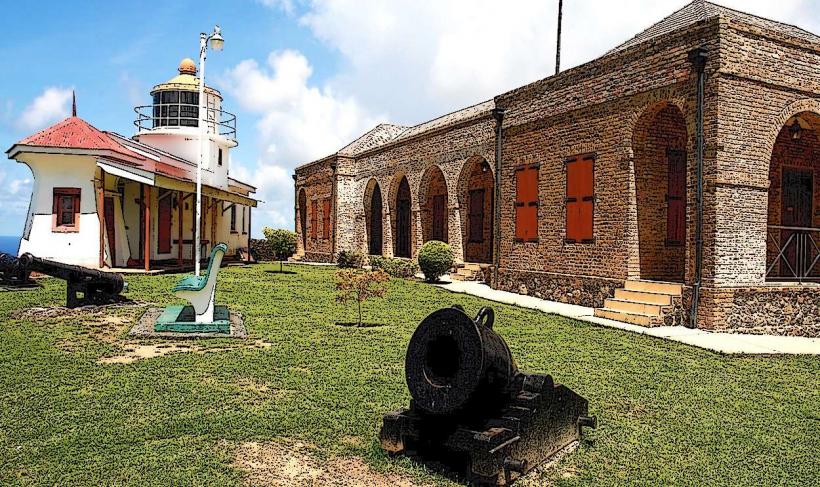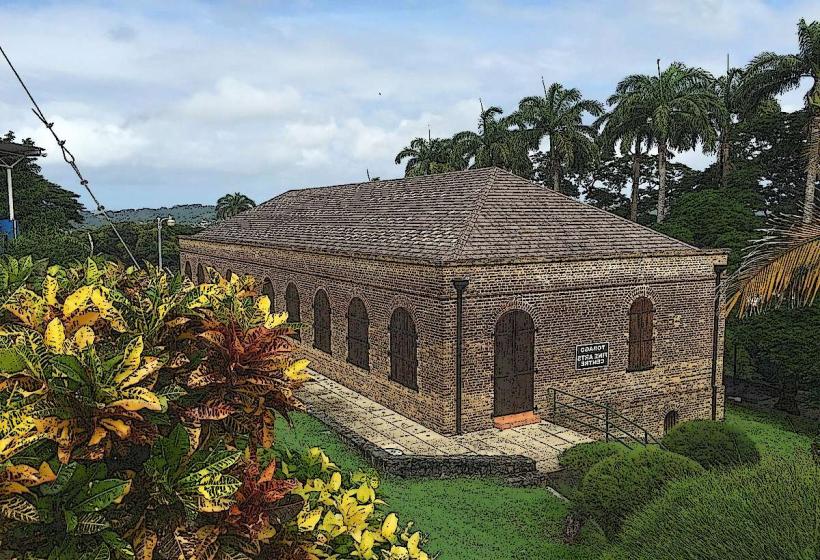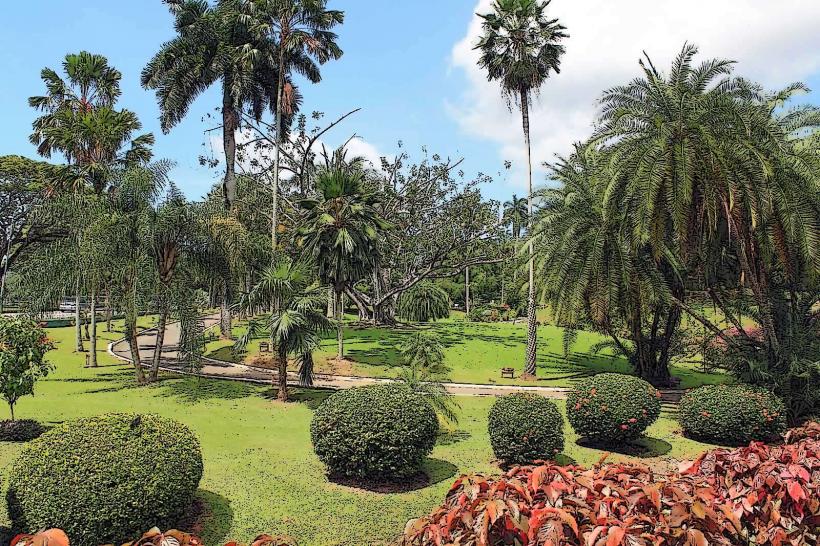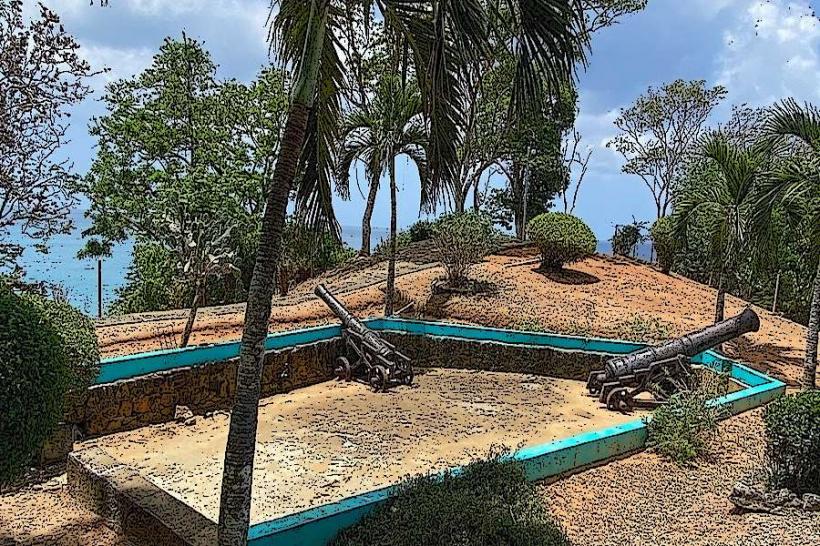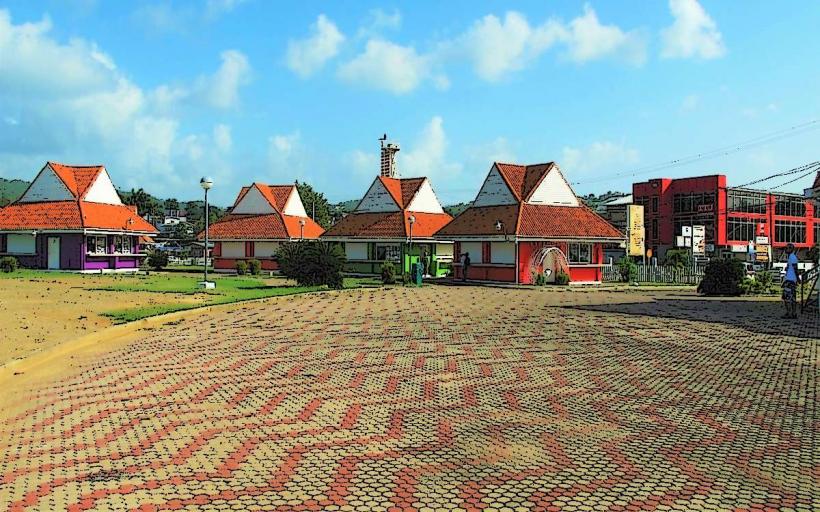Information
Landmark: Plymouth Mystery TombstoneCity: Scarborough
Country: Trinidad and Tobago
Continent: North America
The Plymouth Mystery Tombstone, also known as the "Strange Tombstone", is one of Tobago's most intriguing historical artifacts. Located in the village of Plymouth, on the island’s western coast, this tombstone has fascinated visitors and locals alike due to its cryptic and enigmatic inscription. Here’s a detailed look at this mysterious landmark:
Location
- Where to Find It: The tombstone is located in the graveyard of Courland Methodist Church, near the coastal village of Plymouth. The church is within walking distance of other historical landmarks in Plymouth, making it a key stop for history enthusiasts.
- Accessibility: Plymouth is approximately 10 kilometers (6 miles) northwest of Scarborough, and the site can be easily reached by car in about 15–20 minutes.
The Mystery of the Inscription
The tombstone is believed to date back to the late 18th or early 19th century and is engraved with the following inscription:
“She was a mother without knowing it,
A wife without letting her husband know it,
Except by her kind indulgences to him.”
This puzzling epitaph has sparked centuries of speculation, as its meaning is ambiguous and lacks additional historical context.
Theories About the Inscription
A Secret Marriage:
- Some believe the woman referenced on the tombstone may have had a clandestine relationship or marriage that was kept hidden for unknown reasons.
An Illegitimate Child:
- Another theory suggests that the inscription could hint at an illegitimate child or a situation in which the deceased cared for a child who was not biologically her own.
Symbolism or Allegory:
- The wording might not be literal but instead an allegory or poetic expression, possibly indicating an unconventional life or relationships.
Misinterpretation of History:
- It is also possible that the story behind the tombstone has been lost over time, and the wording, though mysterious now, might have been clearer to contemporaries.
Colonial Era Quirk:
- The tombstone's wording could reflect the cultural norms, humor, or customs of the colonial era in which it was created, which may now seem peculiar or cryptic.
Historical Context
- Plymouth’s History: The village of Plymouth is one of the oldest settlements in Tobago, rich with colonial history involving the Spanish, Dutch, British, and French. This multi-colonial heritage has left behind artifacts like the tombstone, though little is known about its origins or the person it commemorates.
- Courland Estate: The area where the tombstone is found was part of the historic Courland Estate, an early colonial settlement established by Latvian settlers from Courland in the 17th century.
Tourist Appeal
The Plymouth Mystery Tombstone draws visitors due to its:
- Historical Value: It is a tangible piece of Tobago's colonial past.
- Curiosity Factor: The cryptic inscription leaves much to the imagination and has inspired debates, theories, and even creative stories.
- Cultural Connection: Visitors often pair a visit to the tombstone with explorations of other nearby landmarks, such as Fort James and the Great Courland Bay.
Tips for Visiting
- Combine with Other Attractions: Plymouth is home to other historical sites, like Fort James, a short distance from the tombstone.
- Guided Tours: Joining a guided tour can provide additional historical context and local folklore about the tombstone.
- Respect the Site: Since the tombstone is located in a churchyard, visitors should be respectful of the surroundings.
Why Visit the Plymouth Mystery Tombstone?
The Plymouth Mystery Tombstone offers a fascinating glimpse into Tobago’s colonial history and invites visitors to ponder the enigmatic life story behind the unusual inscription. Whether you’re a history enthusiast, a lover of mysteries, or simply curious, this unique site is a must-see for anyone exploring Tobago.












